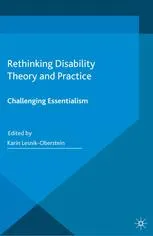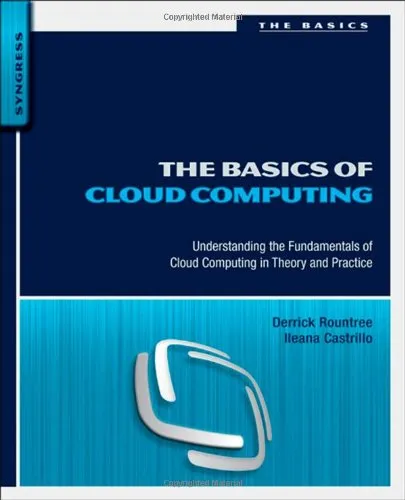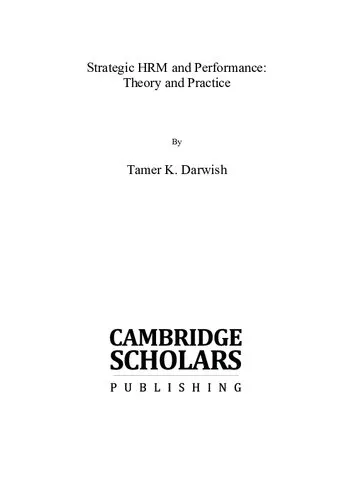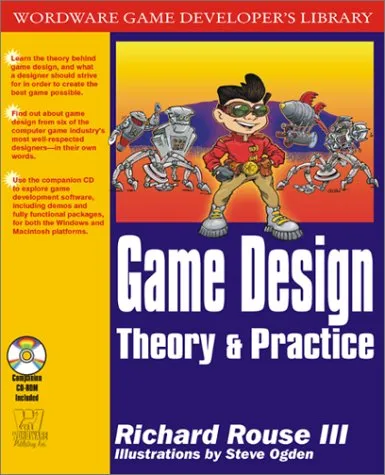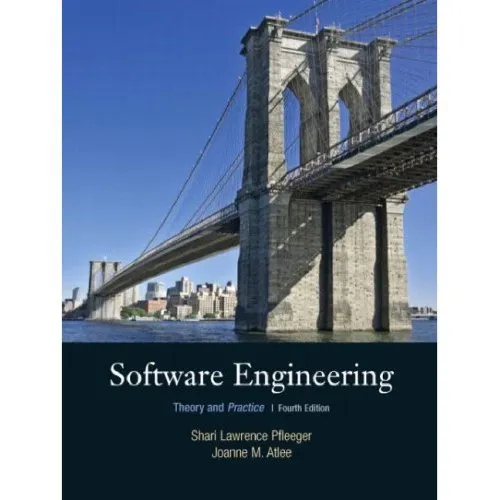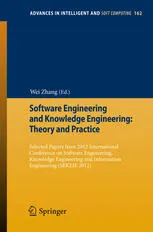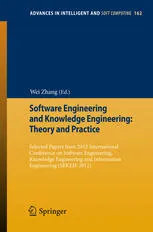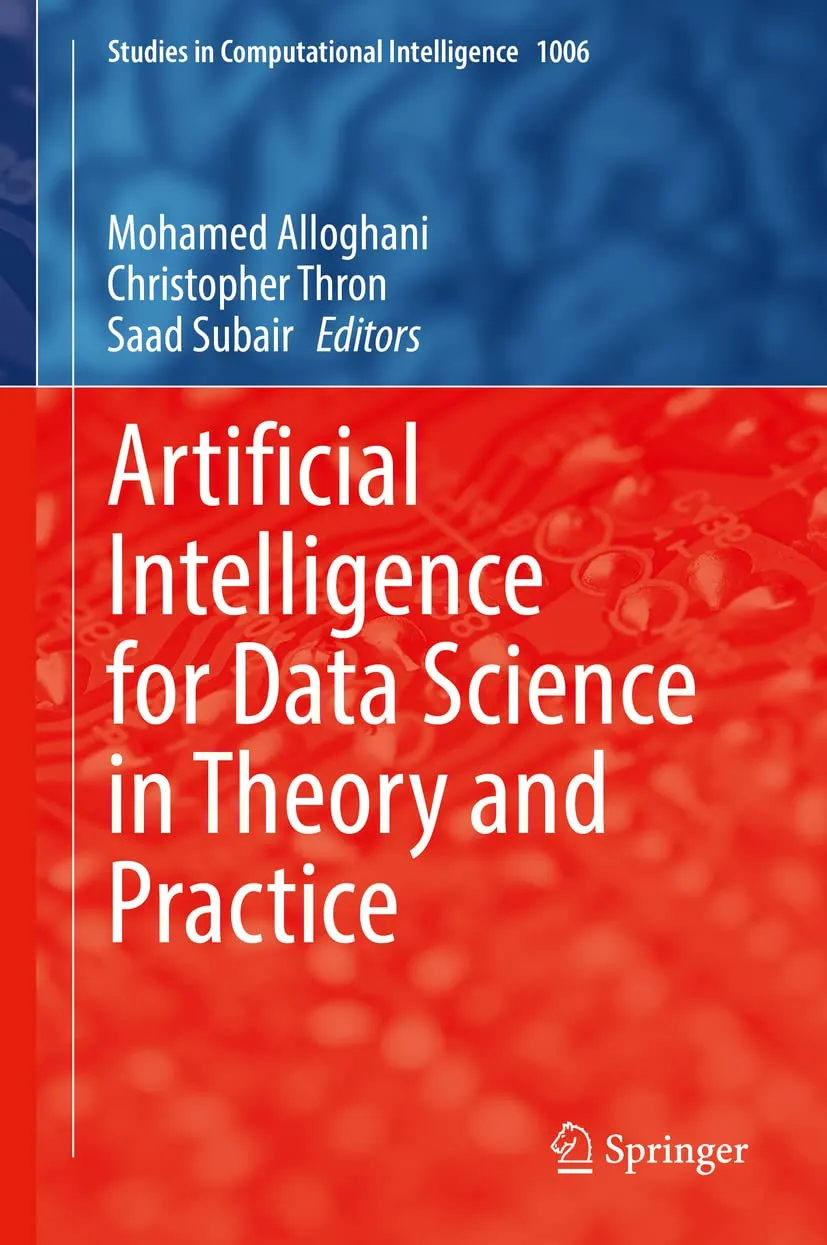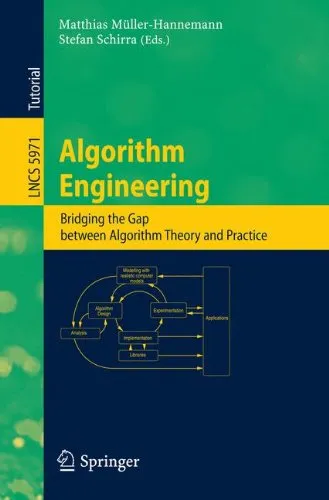Rethinking Disability Theory and Practice: Challenging Essentialism
3.8
بر اساس نظر کاربران

شما میتونید سوالاتتون در باره کتاب رو از هوش مصنوعیش بعد از ورود بپرسید
هر دانلود یا پرسش از هوش مصنوعی 2 امتیاز لازم دارد، برای بدست آوردن امتیاز رایگان، به صفحه ی راهنمای امتیازات سر بزنید و یک سری کار ارزشمند انجام بدینکتاب های مرتبط:
درباره کتاب
کتاب Rethinking Disability Theory and Practice: Challenging Essentialism به قلم Karín Lesnik-Oberstein اثری پیشگام و بنیادی در حوزه مطالعات معلولیت و نظریهپردازی اجتماعی است که چالشهای مهمی را نسبت به رویکردهای Essentialism در فهم و تبیین معلولیت مطرح میکند. این کتاب با شکافتن مرزهای تئوری و عمل، دیدگاههای سنتی درباره ذاتگرایی در معلولیت را زیر سؤال میبرد و رویکردهای جدیدی را برای فهم مفاهیم پیچیده معلولیت ارائه میدهد.
خلاصهای از کتاب
این کتاب با تحلیل عمیق مفاهیم فلسفی و اجتماعی معلولیت، به بررسی محوریترین موضوعات مربوط به نظریهپردازی معلولیت میپردازد. نویسنده با استفاده از دیدگاههای بینارشتهای، تأثیرات Essentialism را در ساختارهای اجتماعی بررسی کرده و نشان میدهد چگونه این دیدگاهها میتوانند به تثبیت دایرههای محدود و کلیشهای از معلولیت منجر شوند. او معتقد است که Essentialism نه تنها به جایگاه معلولان در جامعه آسیب میزند، بلکه توسعه یک دیسکورس بازتر و انتقادی را نیز محدود میسازد.
کتاب از سه بخش اصلی تشکیل شده است: بخش اول به تحلیل نظریههای Essentialism و ریشههای تاریخی آن پرداخته، بخش دوم به نقد عملی این دیدگاهها از طریق مثالهای واقعی در زمینه سیاستگذاری، آموزش و رسانه میپردازد، و بخش سوم پیشنهادهایی برای جایگزین کردن رویکردهای غیرذاتگرایانه در تمامی جنبههای جامعهشناسی معلولیت ارائه میکند.
نکات کلیدی
- تمرکز بر نقد ذاتگرایی (Essentialism) و تأثیرات آن بر جامعه و سیاست.
- استفاده از روشهای بینارشتهای برای تحلیل معلولیت.
- پیشنهاد جایگزینهای عملی برای سیاستگذاری و آموزش آزادتر و انتقادیتر.
- تقویت دیدگاههای رهاییبخش و ضدساختارگرایی در مطالعات معلولیت.
- نقد رویکردهای محدودکننده که افراد دارای معلولیت را تنها به عنوان "دیگران" یا "استثناها" مینگرند.
جملات مشهور از کتاب
"To understand disability as more than its physicality or medicalization is to challenge centuries of ingrained Essentialist thinking."
"Disability is not merely a condition of the body but a construct of society's refusal to see beyond Essentialist definitions."
چرا این کتاب مهم است؟
این کتاب درک ما از معلولیت را به چالش میکشد و کمک میکند که دیدگاهها و تفکرات سنتی در این زمینه را مورد بازبینی قرار دهیم. اهمیت این کتاب در آن است که از مرزهای متعارف فراتر رفته و مفاهیم جدیدی را معرفی میکند که میتوانند ابزارهای لازم برای تغییرات اجتماعی فراگیرتر و منصفانهتر را فراهم کنند. نویسنده تأکید میکند که تنها با رها کردن Essentialism میتوانیم به درکی عمیقتر و انسانیتر از معلولیت دست پیدا کنیم و سیاستها و رویههایی را به اجرا بگذاریم که به جای محدودیت، فرصت را برای همگان مهیا سازند.
همچنین، این کتاب با استفاده از زبان روشن و قدرت استدلال قوی، به منبعی ارزشمند برای دانشجویان، پژوهشگران، سیاستگذاران و همه افرادی تبدیل شده است که به دنبال تغییرات معنادار در جهان پیرامون خود هستند. این اثر یک چراغ راهنما برای فهم پیچیدگی معلولیت و فراتر رفتن از کلیشهها و باورهای کهنه است.
Introduction to "Rethinking Disability Theory and Practice: Challenging Essentialism"
Disability is often misunderstood and misrepresented due to pervasive societal norms and essentialist thinking. Rethinking Disability Theory and Practice: Challenging Essentialism, edited by Karín Lesnik-Oberstein, invites readers to engage critically with existing disability theories and practices while interrogating concepts of identity, normalcy, and marginalization. This thought-provoking book questions the essentialist frameworks through which disability is traditionally understood and challenges readers to embrace its complex, multifaceted nature.
Summary of the Book
In this edited volume, contributors from diverse academic and professional backgrounds come together to address one core question: how can we rethink disability beyond essentialist paradigms? Essentialism often reduces multifaceted experiences of disability to static, biologically determined conditions, ignoring the cultural, social, and political dimensions of what it means to belong to the category of "disabled." This book argues that dominant ideas about disability—constructed through historical, medical, and even theoretical lenses—reinforce exclusion and othering.
The chapters collectively critique these dominant models by proposing fluid, intersectional, and context-sensitive perspectives. Through a combination of theory, case studies, and reflections, the book dismantles stereotypes and offers fresh insights into the lived realities of disability. By interrogating language, representation, and power, it seeks to foster a more equitable and inclusive understanding of disability that accounts for the diversity of human experience.
Key Takeaways
- 1. The Limitations of Essentialism: The book argues that essentialist views of disability are reductive and fail to capture its complex intersections with race, gender, class, and sexuality.
- 2. Language Matters: How we think about and speak of disability holds immense power to shape perceptions and opportunities for meaningful social inclusion.
- 3. Interdisciplinary Dialogue: Disability studies benefit from working across disciplines to better understand the social, cultural, and political implications of ableism.
- 4. Beyond the Medical Model: While medicine has had a pivotal role in shaping disability discourse, this book advocates moving beyond a purely biomedical framework to examine the broader societal factors at play.
- 5. Reimagining Disability Justice: True justice requires moving from accommodation to transformation—challenging systems of oppression and rethinking societal structures fundamentally.
Famous Quotes from the Book
"Disability is not merely a biological reality; it is a social construct shaped by power, privilege, and cultural expectations."
"To challenge essentialism is to expose the ways in which disability is a lived experience that cannot be simplistically defined or confined."
"Rethinking disability requires not just a shift in perspective, but a dismantling of the very systems that perpetuate marginalization."
Why This Book Matters
Rethinking Disability Theory and Practice: Challenging Essentialism is not just a book for academics or practitioners—it is a vital resource for anyone committed to social justice and inclusion. Disability remains an underexplored aspect of identity and oppression, despite being a global experience affecting millions. This book seeks to bridge that gap by encouraging nuanced conversations about what disability is and how society can move toward more equitable practices.
By offering new frameworks for understanding, this book holds significance for policy-makers, educators, healthcare professionals, and advocates striving to dismantle systemic barriers. It equips readers with the tools to critically examine ableism in its many forms, offering a vision for a future that values all bodies, abilities, and experiences. Its commitment to challenging essentialism invites readers to appreciate complexity while working toward meaningful change, making it a transformative addition to the field of disability studies.
دانلود رایگان مستقیم
شما میتونید سوالاتتون در باره کتاب رو از هوش مصنوعیش بعد از ورود بپرسید
دسترسی به کتابها از طریق پلتفرمهای قانونی و کتابخانههای عمومی نه تنها از حقوق نویسندگان و ناشران حمایت میکند، بلکه به پایداری فرهنگ کتابخوانی نیز کمک میرساند. پیش از دانلود، لحظهای به بررسی این گزینهها فکر کنید.
این کتاب رو در پلتفرم های دیگه ببینید
WorldCat به شما کمک میکنه تا کتاب ها رو در کتابخانه های سراسر دنیا پیدا کنید
امتیازها، نظرات تخصصی و صحبت ها درباره کتاب را در Goodreads ببینید
کتابهای کمیاب یا دست دوم را در AbeBooks پیدا کنید و بخرید
1370
بازدید3.8
امتیاز0
نظر98%
رضایتنظرات:
3.8
بر اساس 0 نظر کاربران
Questions & Answers
Ask questions about this book or help others by answering
No questions yet. Be the first to ask!
